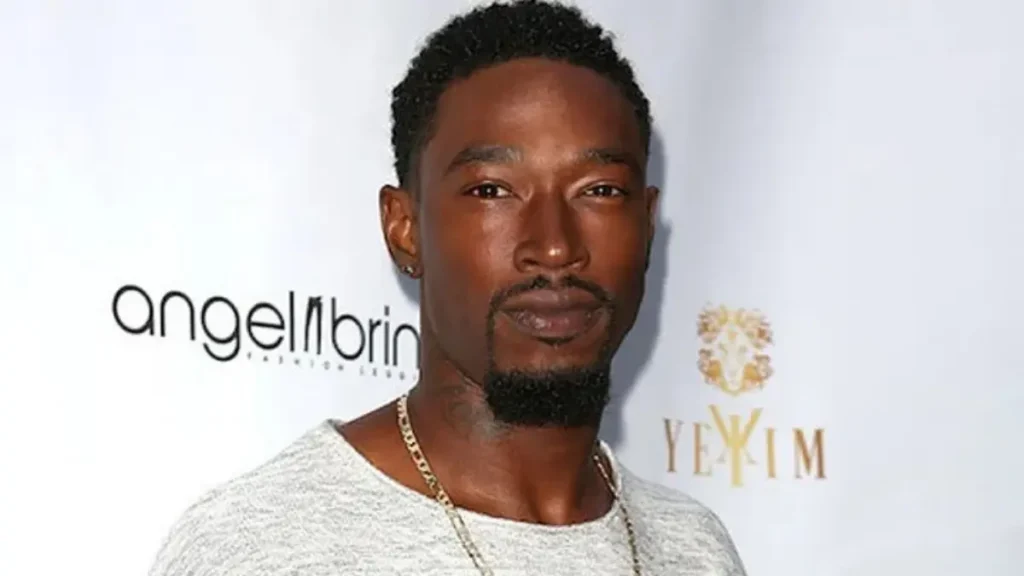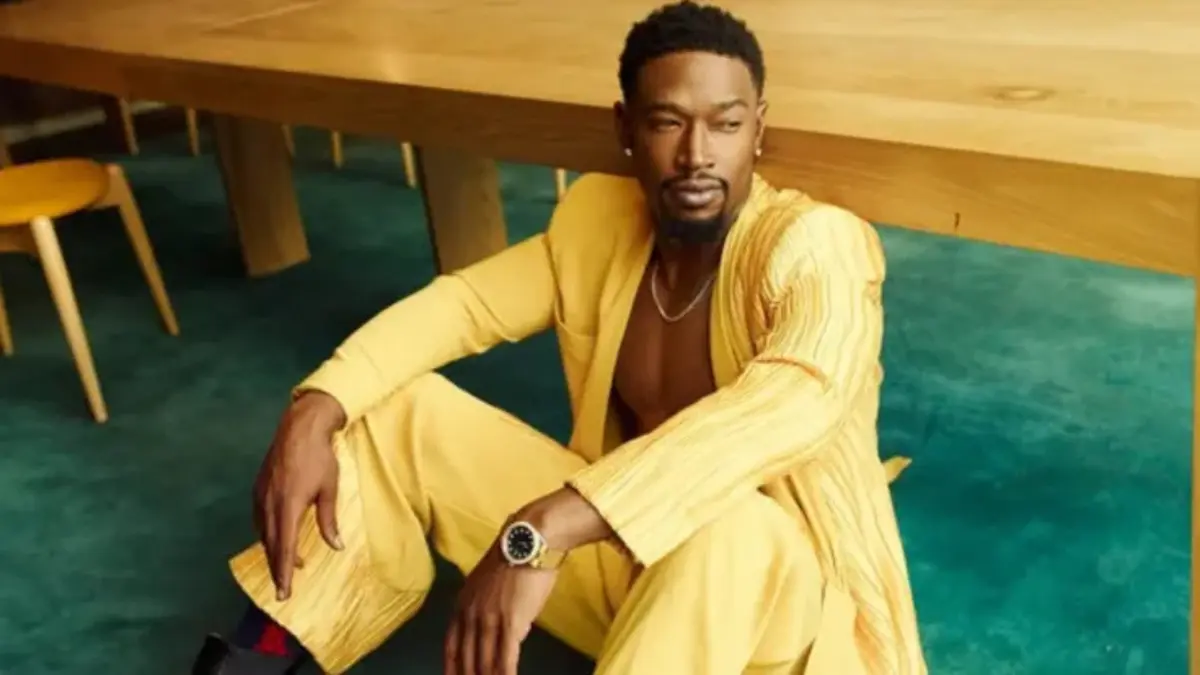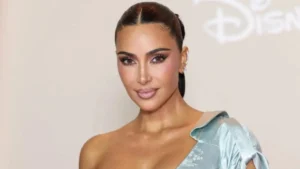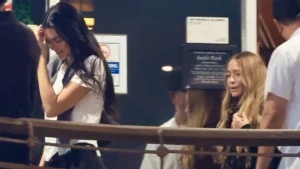Key Takeaways
- Kevin McCall broke down on the “Back On Figg” podcast, revealing he’s on EBT and says he’s owed $25K tied to old collaborations.
- Hours later, Young Thug publicly offered to send McCall $25K, urging that Chris Brown would make things right, too.
- McCall’s résumé includes co-writing/appearing on Chris Brown’s “Deuces” (No. 1 R&B/Hip-Hop) and “Strip,” cementing his early-2010s impact.
- The moment spotlights how songwriting royalties actually work in 2025—and why some creators still miss payments.
The studio is warm, but Kevin McCall shivers.
The cameras roll.
On the “Back On Figg” couch, the singer-songwriter who helped craft early-2010s R&B anthems stares at his wallet, pulls out a blue EBT card, and asks the question that will echo across timelines for the next 24 hours: “Why do I get an EBT card?” The clip ricochets through hip-hop media, because it’s about more than one man’s misfortune—it’s about the music economy, memory, and the distance between the spotlight and the songwriters who power it.
Within hours, Atlanta star Young Thug chimes in from X with an unexpected lifeline—“I’ll give u the 25k u need”—and a belief that Chris Brown will reach out as well.
Whether you see it as solidarity or spectacle, it turns McCall’s confession into a flashpoint for how the business treats the people behind the hits.
This piece revisits McCall’s rise, the tearful 2025 moment, what Thug’s offer means, and how royalties really flow in the streaming era.
The Early Fame That Started It All—Kevin McCall’s Hitmaking DNA
Before the acronyms and the headlines, Kevin McCall was the kid in the credits—pen in hand, voice in the booth, and a producer’s ear for feel.
His breakout came via Chris Brown’s “Deuces,” a slow-burning R&B ballad that reached No. 1 on Billboard’s Hot R&B/Hip-Hop Songs and climbed to No. 14 on the Hot 100, re-centering Brown’s radio momentum and putting McCall’s name on mainstream charts.
He also featured on and co-wrote “Strip,” a 2011 single that peaked on the Hot 100 and cemented the chemistry.
Those records placed McCall in the lineage of versatile R&B architects who can write, sing, and produce. Back then, the future looked straightforward: more placements, more publishing, more tours.
But music careers rarely run straight; they zag. Legal turbulence and personal setbacks slowed his ascent, even as the songs lived on. (McCall’s public disputes and court woes were covered across the 2010s.)
The 2025 Viral Moment—Tears, EBT, and a Public Plea
The “Back On Figg” episode is raw. McCall speaks on career highs and lows, the emotional whiplash of watching a former collaborator sell out arenas while his own finances collapse, and the sting of feeling forgotten. Mid-conversation, he produces an EBT card and pleads for $25,000 he believes he’s owed for four songs.
The studio falls silent, then scrambles to comfort him. The clip floods Instagram and hip-hop blogs within hours.
TMZ packages the moment for the mainstream: “Kevin McCall Sobs Heavy Discussing Chris Brown & EBT Situation,” highlighting his claim that residuals dried up even as Brown’s current tour thrives. Whether every dollar detail is verifiable, the pain clearly is—and the interview becomes a conversation about credit, contracts, and mental health.
Yahoo-syndicated coverage and outlets like TheGrio echo the story, framing it as a case study in the precarious lives of behind-the-scenes creatives.
What viewers respond to isn’t just gossip; it’s vulnerability in an industry that rarely rewards it.
Young Thug Steps In—Hip-Hop Solidarity or Optics?
Enter Young Thug. In a post from X (embedded by several outlets), he offers to personally send McCall $25K—while suggesting Chris Brown would give it, too, if he weren’t “busy.”
The gesture lands like a flare: a superstar vouching for another creator’s dignity, even as debate swirls over whether public pleas are the right path to back-pay.
HNHH’s report captures the fan split: some praise generosity; others bristle at the idea of “crying online” to get paid. But the discourse misses the real story—why a songwriter with hits might be broke in the first place.
Why Hitmakers Still Struggle—Royalties 101 (In Plain English)
There are two big royalty streams for songwriters: performance (when music is played publicly) and mechanical (when it’s reproduced—streaming, downloads, physical).
Performance money flows through PROs like ASCAP/BMI; mechanicals for digital services are tracked by the MLC (created by the 2018 Music Modernization Act).
In theory, that means faster and more efficient payments. In reality, splits, outdated registrations, publisher disputes, and catalog sales can block or shrink checks.
The Recording Academy notes that the MMA and the MLC were designed to fix missing/late mechanicals for streaming. It helps—but it doesn’t erase old paperwork gaps, side deals, or the fact that featured artists and songwriters get very different slices of the pie.
If your name isn’t on the master side, touring and merch money usually aren’t yours; your income depends on accurate song data and fair splits.
Bottom line: a songwriter can help write a smash, then fall through cracks—especially if credits aren’t registered perfectly, if advances recoup slowly, or if disputes freeze payouts. That’s the larger context sitting beneath McCall’s tears.
The Fans React—From Empathy to Outrage
As clips spread, comments range from “we love a generous Thug” to “stop enabling” and “pay the man.”
Viral culture moves fast, but the compassion is notable: men on camera hugging a man who’s hurting. That image—emotional honesty without mockery—feels like a turning point.

The Artist vs. The Catalog—What Happens Next for Kevin McCall
If McCall wants sustained stability in 2025, the playbook is familiar but tough: clean up registrations with PROs and the MLC, audit old splits with a rights-savvy attorney, exploit catalog through re-releases/covers, and rebuild on camera (livestream writing sessions, collaborative EPs, sync-ready packs).
The mechanics may be unglamorous, but they’re real leverage in a streaming-first economy. (The U.S. Copyright Office even publishes a plain-English explainer on income pathways for music creators.)
Kevin McCall’s 2025 Era—A Second Act Is Still Possible
You don’t get “Deuces” levels of feel by accident. McCall’s track record—writer, producer, featured voice—shows he can still identify melodies that stick.
The viral moment has already reframed him as a human being, not just a name in the credits.
Paired with the right business clean-up and a few timely collaborations, the road back is hard but not closed. (Remember: the industry loves a comeback when the songs land.) For perspective on Young Thug’s own post-trial rebuild—another reminder that careers can pivot—see People/AP’s coverage of the case’s resolution and the road ahead.
Conclusion
Kevin McCall’s 2025 confession is bigger than a headline—it’s a mirror. It reflects a system where the people who shape hits can still slip through its cracks, and where one public plea can trigger a public lifeline.
Whether you spell it Kevin McCall or Kevin McCall, the story lands the same: talent isn’t a safety net, and vulnerability can be a catalyst.
If Young Thug’s offer is the spark, the real fire will be in McCall’s next moves—tightening the business, reclaiming his catalog story, and writing the songs that made his name ring in the first place.
FAQs
What exactly did Young Thug offer Kevin McCall?
Young Thug publicly offered to send McCall $25,000 and suggested Chris Brown would support the gesture as well.
Why is Kevin McCall on EBT if he worked on hits?
Songwriters are paid via performance and mechanical royalties that depend on accurate registrations, splits, and recoupment. Disputes or missing data can delay or reduce payments—even for big songs.
What songs is Kevin McCall best known for?
He co-wrote/appeared on Chris Brown’s “Deuces” (No. 1 R&B/Hip-Hop) and featured on “Strip,” among other early-2010s collaborations.
Where did Kevin McCall reveal he’s on EBT?
On the “Back On Figg” podcast, the clip was widely shared and later covered by major outlets.
Did Chris Brown respond to the $25K claim?
As of this writing, the conversation has centered on McCall’s interview and Young Thug’s offer; mainstream coverage is watching to see if Brown engages directly.
How can songwriters protect themselves in 2025?
Register works with a PRO (ASCAP/BMI), ensures accurate splits, enrolls with the MLC for digital mechanicals, and considers periodic audits with experienced counsel.
Mohit Wagh is the co-founder of The Graval with over 10 years of experience in SEO and content strategy. He specializes in crafting data-driven, authoritative content that blends cultural insight with digital growth.














